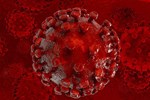ARTICLES BY MARCUS JOHNSON
-
Brown University Researchers Discover Chemo Resistant Stem Cells7/7/2014
Researchers at Brown University have found that adipose-derived human stem cells (ASCs) might be highly resistant to methotrexate (MTX), a common chemotherapy drug. ASCs can ultimately become bone and other vital tissues throughout the body, which could be key for researchers looking to protect bone tissue from the damage caused by MTX treatment. MTX, which is used to treat a number of different cancers including acute lymphoblastic leukemia, causes the loss of bone density and has an adverse effect on bone marrow derived stem cells.
-
NIH Picks Vanderbilt, 5 Other Universities To Be Part Of Rare Diseases Network7/3/2014
Vanderbilt University’s Medical Center was chosen as one of the six clinical sites for the NIH’s Undiagnosed Diseases Network. Medical facilities participating in the network will work to identify, research, and treat rare diseases. Other Universities selected for the Network include, Baylor College of Medicine, Duke University, and Stanford University, among others.
-
New Lung-MAP Trial Begins For Evaluating New Lung Cancer Drugs7/3/2014
A new Lung-MAP study, launched by the National Cancer Institute (NCI) along with the SWOG cancer group, a number of private foundations, and five pharmaceutical companies, is aiming to find new drugs for squamous cell lung cancer. While drug companies have come together for prospective studies in the past, this study’s scope and size are relatively surprising. Through this collaboration, the researchers will be identifying the molecular abnormalities in patients and examining each patient on an individual basis for the likelihood of a chemical response to a particular drug.
-
USM Developing Polymeric Vehicle Drug Delivery System For Cancer Treatment7/2/2014Researchers at the University of Southern Mississippi are working on developing a polymeric vehicle drug delivery system for patients suffering from cancer. The goal of the research was to develop a drug delivery system that could efficiently deliver drugs to targeted locations, minimizing delivery to surrounding tissues that could cause adverse side effects.
-
Link Found Between Herpes Virus And Increased Risk Of HIV Infection7/2/2014Researchers at New York University’s Center for Drug Use and HIV Research completed a study of drug users in the city’s Mount Sinai Beth Israel drug treatment program. The researchers found something unexpected during the study—that the number of heterosexual non-injecting drug users infected with HIV in NYC has surpassed those who inject drugs. The research could have ramifications on HIV and AIDs treatment and education, as the rate of HIV transmission increased significantly when the HSV-2 virus was present.
-
Moffitt Cancer Center Develops Mechanism For Fighting Drug Resistant Melanoma7/2/2014Researchers at the Moffitt Cancer Center in Tampa have developed a new mechanism for identifying targets capable of fighting drug-resistant melanoma— the most dangerous form of skin cancer. The Moffitt team used liquid chromatography-multiple reaction monitoring mass spectrometry in order to measure biomarkers and molecules in the blood and surrounding tissues. This allowed the team to determine if cancer was present in the region, and it also gave them a way to monitor a patient’s response during a course of treatment.
-
Rockefeller University Researchers Identify Compound That Could Treat Alzheimer's7/1/2014
Researchers at Rockefeller University’s Sidney Strickland’s Laboratory of Neurobiology and Genetics have announced the identification of a compound that could eventually be developed into an Alzheimer’s drug. The compound, RU-505, has shown the ability to stop the amyloid-β protein from being able to bind to a clotting agent in the blood, causing the memory loss and other symptoms that affect Alzheimer’s disease patients.
-
Insys Therapeutics Receives Orphan Drug Status For Cannabidiol Epilepsy Treatment7/1/2014Insys Therapeutics has announced that it is receiving orphan drug designation for its pharmaceutical cannabidiol (CBD), which is used to treat Lennox-Gastaut Syndrome — a rare form of pediatric-onset epilepsy. The orphan drug designation will allow Insys to gain a seven year period of marketing exclusivity in the U.S. if the drug is ultimately approved by the FDA and put on the market.
-
University Of Minnesota Researchers Find Master Regulator Of Cancer Gene6/30/2014
Researchers at the University of Minnesota’s Masonic Cancer Center have found that the MYC gene, which is key in the development of cancer, partners with a non-coding RNA, PVT1, in turn fueling the growth of cancer cells. This new discovery could help researchers to better understand the relationship between how the MYC gene boosts the development of cancer and in turn, fuel new drug discoveries.
-
Auxilium Pharmaceuticals Announces Purchase Of Biotech QLT6/30/2014Auxilium Pharmaceuticals has announced that it will be purchasing biotech firm QLT for an estimated $345 million. The companies will be combined, and the remaining shell of QLT will be named “New Auxilium.” This move sets the company up to attain QLT’s new experimental eye drug products for its portfolio.










